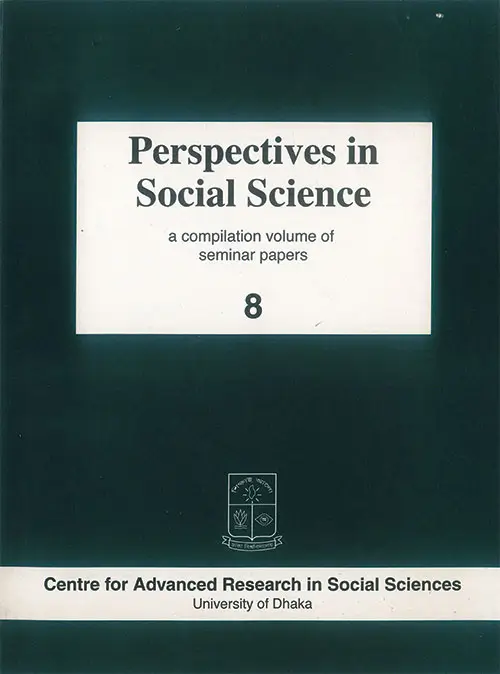
Perspectives in Social Science
Volume 8 July 2005
Perspectives in Social Science
JAPAN'S NEO-ASIAN' POLICY: A POLITICO-ECONOMIC NECESSITY
Perspectives in Social Science
Volume 8 July 2005
DOI:
ISSN :
Abstract
The end of the Cold War induced Japan to start 'new thinking' about its policy toward the Asia region. Domestic forces mounted pressure and aspired for Japan's re-Asianization'. The Plaza Accord of 1985, East European recovery in 1989, U.S.-Japan trade frictions and the proximity of Asian booming markets added potentials to Japan's 'neo-Asian' policy. The article examines the indispensability of Japan's relations with Asian countries to meet the political and economic imperatives for making the 21st century the century for Asia. Japan's aspirations for a politico-economic leadership in Asia, it is argued, need to be reinforced by developing confidence building measures among Asian neighbours and allies, and minimizing asian nations' apprehensions of Japan's militaristic past.
The virulent critics were necessarily uncouth to dub that Japan, even after four decades of its independence from American occupation and being able to transform itself into an economic superpower, failed to graduate itself as a 'normal country', Political analysts professed 'new thinking' of post-Cold War era are due to emerge with substantive force to infuse motivations to overcome the challenges for Japan to chart out its own and independent role--model in global as well as regional perspective.
Since the end of the World War II, Japan could not develop a regional strategy as it maintained a distant relation with Asia. The post-Cold War days witnessed domestic forces in Japan, mounted pressure and aspired for Japan's re- Asianization'. The Plaza Accord of 1985, East European recovery in 1989, U.S.- Japan trade frictions and the proximity of Asian booming markets added potentials to Japan's neo-Asian policy.
The bubble economy burst in early 1990s and the recovery never came. Japan suffered in its economy 3rd recession in 10 years. The situation, with the failure to take reformative measures, might even be worse in near future. In the backdrop of present scenario of the economy, how far is Japan capable of playing an independent and active role in world politics? How far is Japan capable of ensuring its prime postilion in the region... Asia?
Japan is in Asia; Japan is of Asia. Asia is now in the process of exploring a new regional order. Political analysts aspired and leaders realized that Japan, with its great economic potential, participate actively in building an Asian political order. The emphases ran for Japan to search for an identity, to look back to its root. How can Japan contribute in building a stable political order in the region without going. nuclear? How far is Japan capable of cultivating a banalned but harmonious relations with economically and technologically emerging neighbours... China and South Korea, and with key economic partners in Asia?
